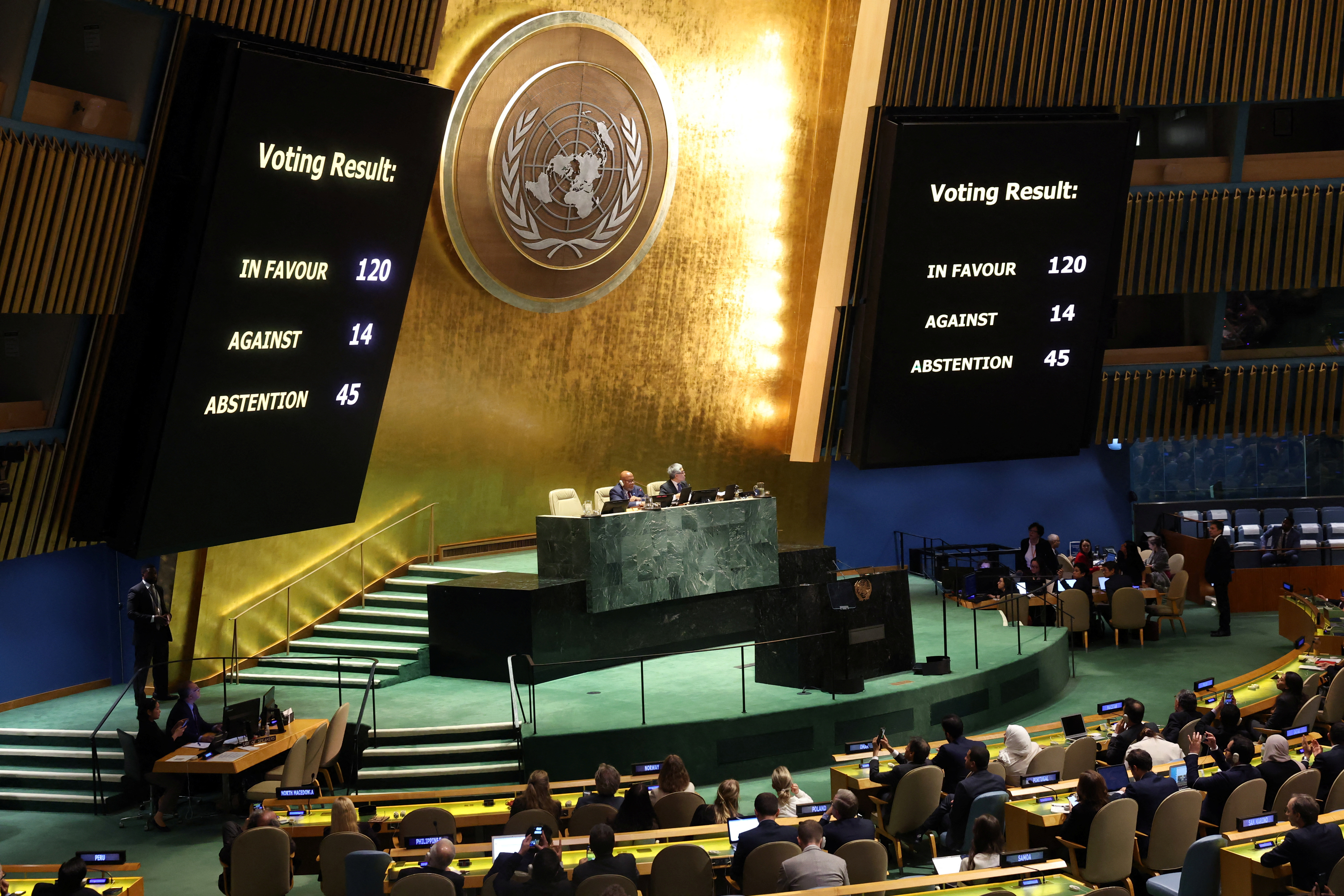Cyprus abstained on Friday night from a United Nations General Assembly vote on a resolution calling for a “sustained humanitarian truce in the Middle East”.
The resolution was adopted by the General Assembly after 120 member states voted in favour.
Those in favour included both Armenia and Azerbaijan, Belgium, China, Egypt, France, New Zealand, Norway, Russia and Turkey.
There were just 14 votes against the motion, with opposition led by the United States and Israel, while Austria, Croatia, the Czech Republic and Hungary also voted against.
Cyprus joined a total of 45 countries to abstain, along with the UK, Australia, Canada, Germany and Greece.
“We wanted to show balance,” foreign ministry spokesman Theodoris Gkotsis told the Cyprus Mail when asked about the reasons behind Cyprus’ abstention.
“There were some countries, many from the Arab world, which were on one side of the argument, and others, such as the United States, which were on the other. We wanted to maintain our balanced stance,” he said.
“We felt that in such a resolution, there should be a condemnation of the instigators. There was no mention of Hamas in the resolution.
“We wanted to maintain our stance, in favour of a de-escalation of this crisis, and to that end, we see that it is best for us to maintain our balance. Others took the same route. Greece and Germany both also abstained on the motion. We think this is the best way,” he said.
But Akel were incensed by the government’s abstention.
“The Christodoulides government must immediately give answers to the Cypriot people about its attitude,” the party said.
“Does he not have an opinion on the need to end the bloodshed in Gaza? Does the government of Cyprus not have a position when the great majority of the world’s states call for an end to the killing of thousands of civilians?” they asked.
“This attitude exposes Cyprus, nullifies its credibility internationally, and, at the same time, puts this country’s government on the side of those who are covering up the ongoing ethnic cleansing at the expense of the Palestinian people.”
Unlike UN Security Council resolutions, General Assembly resolutions are not binding in international law.
However, as the United Arab Emirates’ permanent representative to the UN Lana Nusseibeh told reporters following the vote, “they carry incredible weight and moral authority.”
She added that the 10 elected Security Council members, one of which is currently the UAE, would attempt to “break the gridlock on a Security Council resolution”, taking the “moral authority” from Friday night’s vote.







Click here to change your cookie preferences